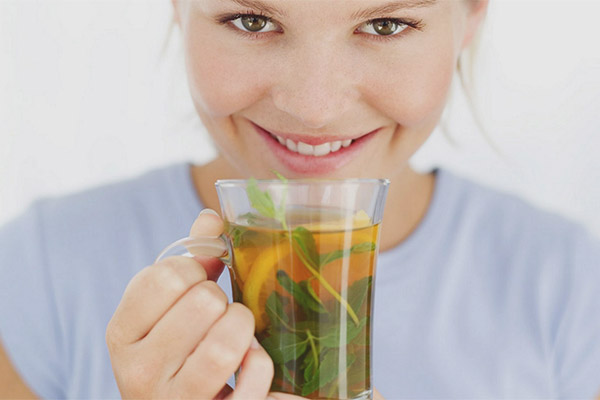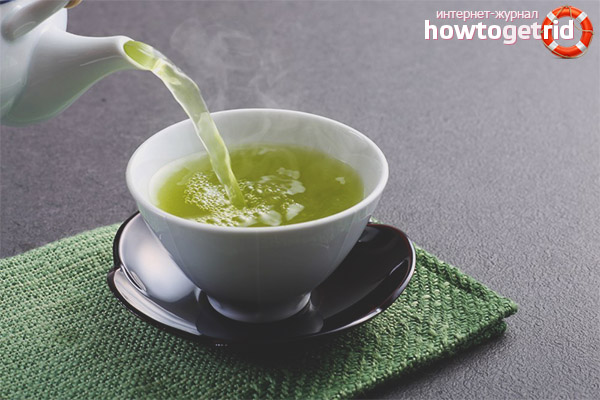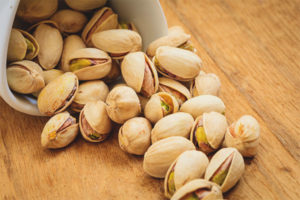The content of the article
Natural green tea is considered an excellent means to support health during childbirth. It perfectly quenches thirst, and in combination with honey and lemon helps a woman cope with the first signs of a cold. And unlike classic black tea or coffee, there is practically no caffeine in it, the use of which during pregnancy is undesirable. What else is famous for green tea, and what is the use of it for women in the position? Why it is not necessary to drink it in liters, and how to increase its healing effects?
The benefits of green tea
Green tea is a healthy drink with an original flavor, which contains most of the minerals and vitamin necessary for the female body during pregnancy. At the same time, a special preprocessing technology allows to preserve the maximum of components in it even under the influence of high temperatures.Among its unique properties are the following features:
- Green tea is considered a good source of such macronutrients as magnesium and calcium.
- The natural antioxidants contained in it enhance the immune response, protecting not only from free radicals, but also seasonal infections.
- Does not allow diabetes in pregnant women because it balances blood sugar levels.
- Strengthens teeth and bones, preventing their destruction.
- Normalizes blood pressure.
- Thanks to its constituent phytoncides, it helps to cope with toxemia by removing nausea.
- Contributes to the harmonious work of the entire gastrointestinal tract, normalizing the process of digestion.
- Since many pregnant women often overeat, this can trigger an increase in cholesterol. Several cups of green tea prevent its deposition.
Controversial moments
Another reason why you should not drink green tea uncontrollably is caffeine. Being a stimulant, it can lead to an increase in the pressure of the mother and heart palpitations. This is especially dangerous at the end of the first trimester, as it can not only provoke the general indisposition of a woman, but also bleeding. Caffeine also negatively affects the development of the child. It inhibits the laying of internal organs and increases the risk of having a premature baby. But again, a dose of caffeine per 2 cups a day does not harm the body.
How to brew and drink green tea
To get the most out of any product, you need to properly prepare it. In the case of green tea, you must first choose the appropriate grade.These can be clean leaves, or they can be supplemented with herbs or pieces of fruit. It all depends on personal preference.
The classic proportion for brewing green tea is no more than 1 teaspoon without a slide per 250 ml of water. The time of infusion depends on the size of the tea leaves and the result we want to achieve. In tea, there is a substance thein, which provides a tonic effect. It is transferred to the water during the first minutes after the welding touched boiling water. Further tea is enriched mainly with tannins. Therefore, if you want to cheer up, then leave the tea to infuse no more than 1.5 minutes. If you just want to enjoy the multifaceted taste of leaf tea, then you can leave it to infuse for up to 5 minutes.
Water quality
The optimal temperature for brewing tea is from 80 to 90 ° C. It is impossible to use water from the tap; it is better for pregnant women (as well as, in principle, for all who care about their health) to buy bottled water. The quality of water must be approached very critically, because many manufacturers save on installations, offering consumers water with an overwhelming amount of nitrates and heavy metals.Ideally, it should be given to an independent laboratory for analysis. If possible, you can install a compact filtration system in your home.
What brew?
Green Tea Rules
Green tea is not recommended to drink immediately after the meal, because in this case it will interfere with the absorption of iron. For a pregnant woman, it threatens with anemia (lack of oxygen entering the tissue), which will negatively affect the development of the fetus. It is enough to wait from 30 minutes to an hour. A unique feature of green tea is that it can be re-brewed. Moreover, the subsequent times the characteristic bitterness disappears from it.
It is better to combine green tea with honey (adding warm water, but not boiling water), milk or fresh ginger. But sugar is better to refuse. If you want something sweet, you can drink a cup of tea while holding dried fruit.
Green tea improves the functioning of the whole body: it fights infections, restores the bowels, helps to cope with toxemia. Provided it is consumed in an acceptable amount, it will become an excellent vitamin cocktail that enriches the woman’s body with necessary components.
Video: can pregnant karkade tea












To send